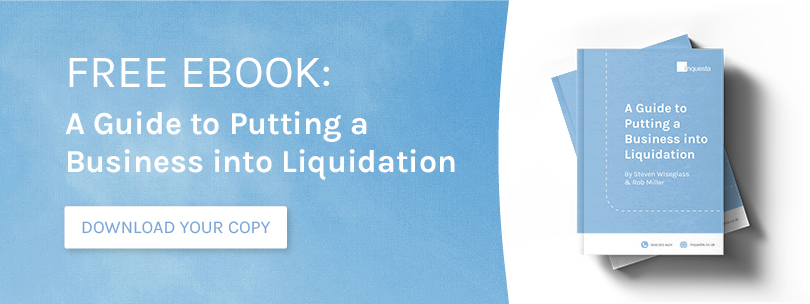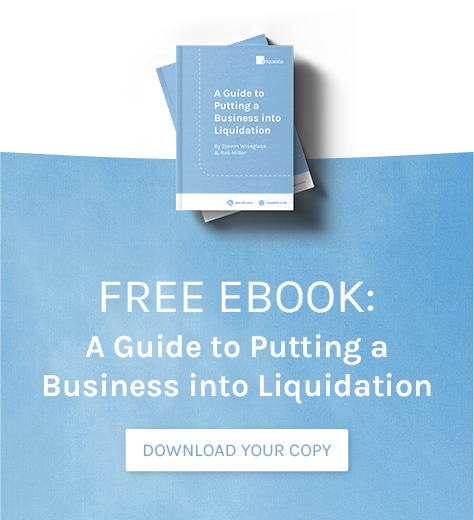At the end of March, the government announced a package of measures to protect the economy from complete collapse due to COVID-19. The Act has now received Royal Assent.
The Act is very much designed for the challenging times in which we find ourselves. It aims to give companies the optimum chance for survival and protect jobs.
The headline-grabbing measure involves the suspension of wrongful trading.
If a director knew, or ought to have known, that there was no reasonable prospect of their company going into insolvent liquidation, under S214 of Insolvency Act 1986 a court can order the director to make such contribution to the company’s assets as it thinks proper.
The government announced that these provisions would be suspended retrospectively from March 1. Action will not be able to be taken by liquidators and administrators against directors of insolvent companies as a result of continued trading. However, directors remain subject to other potential sources of liability under the Act.
The government justified its action on ‘wrongful trading’ by stating it wanted to encourage directors to keep their businesses going in difficult times. It allowed for additional debt to be incurred, much of which would actually come from government schemes such as the Bounce Back Loan Scheme. It is understandable that directors are being encouraged to act without fear of the risk of personal liability should their company ultimately fall into insolvency. Offering reassurance to directors in survival mode is sensible, and one cannot criticise the creation of such a ‘buffer zone’ in these times.
However, we cannot shut our eyes to the concern that dishonest directors might seek to take advantage of the suspension to act with impropriety. One cannot help but feel that some will see this as an endorsement of unscrupulous behaviour. Directors are advised to still take professional advice and document the reasons behind their business decisions.
Directors should be aware that the government followed up its statement on wrongful trading by explicitly stating that other forms of liability, such as fraudulent trading by directors, were not suspended.
A further seven measures are included in the Act. Whilst some of these have been in the offing for some time, the government sees the current crisis as the appropriate time for their introduction.
Statutory Demands and Winding-up Petitions
It appears entirely sensible and pragmatic that companies, many of which have been unable to trade in the current pandemic, are free from the threat of statutory demands and winding-up petitions. One must applaud the fact that statutory demands and winding-up petitions issued against businesses are void under the Act.
Moratorium
A moratorium prevents legal action being taken against a company without court approval. A new 20 business-day moratorium will be introduced to provide ‘formal breathing space’ whilst a company looks at options for a financial rescue or restructuring. This will be in addition to the existing moratoria provided by the Insolvency Act 1986 to companies. The initial period could also be extended by a further 20 business days.
Exit from the moratorium is expected to be through an informal restructuring arrangement with creditors or a formal insolvency procedure such as a company voluntary arrangement, an administration or a scheme of arrangement. An insolvency practitioner will be appointed to monitor and oversee the business during the moratorium.
In perhaps the most challenging circumstances any of us can recall, a further breathing space for businesses is certainly necessary at this time, and the involvement of an insolvency practitioner in proceedings should give creditors comfort that a viable exit plan will be in place.
Ipso Facto Clauses
New rules will be introduced protecting the supply of goods and services to the business. The ‘ipso facto’ clauses prevent suppliers from stopping, or threatening to stop, supplying businesses going through an insolvency or restructuring procedure.
It is important to note that provisions have been made to prevent hardship caused to the suppliers and the rules ensure continuing supplies are paid for, which is important, as one cannot forget the requirements of suppliers and their cash flow at this time.
Restructuring plan
Firms that are viable but experiencing difficulty with debt liabilities will be able to restructure under a new procedure. Creditor involvement will be limited, with courts having the power to impose the procedure over creditors.
If the aim is to prevent aggressive creditors from stopping a viable restructure of a company, then that must be greeted positively. It is encouraging to see that the test the court must apply is whether the procedure is fair, equitable and in the interest of creditors.
Annual General Meetings (AGMs)
With gatherings of multiple individuals not currently permitted, the Bill allows companies that must legally hold an AGM or a GM to do so by other means – even if company protocol does not normally allow this. With Parliament and the courts operating virtually, it is certainly refreshing to see the government offering added flexibility to companies at this time.
Filing requirements
Companies House has also made changes to filing requirements during the COVID-19 pandemic, including extending deadlines and thwarting the threat of penalties for late submissions by companies unable to meet their requirements. The Act gives the Secretary of State the power to show added flexibility in the future. and implement further extensions. Again, one can only welcome the flexibility being shown by the government in this respect.
There is no doubt that the government has the unenviable task of introducing measures that protect cash-strapped companies whilst ensuring creditors’ rights are also respected. It appears that the measures favour the rights of companies over their creditors. One must appreciate the concern this causes suppliers already faced with their own challenges caused by COVID-19. However, in order to save companies, and for the good of the economy as a whole, it is hoped that the measures provide the best-possible outcome during these uncertain times.




